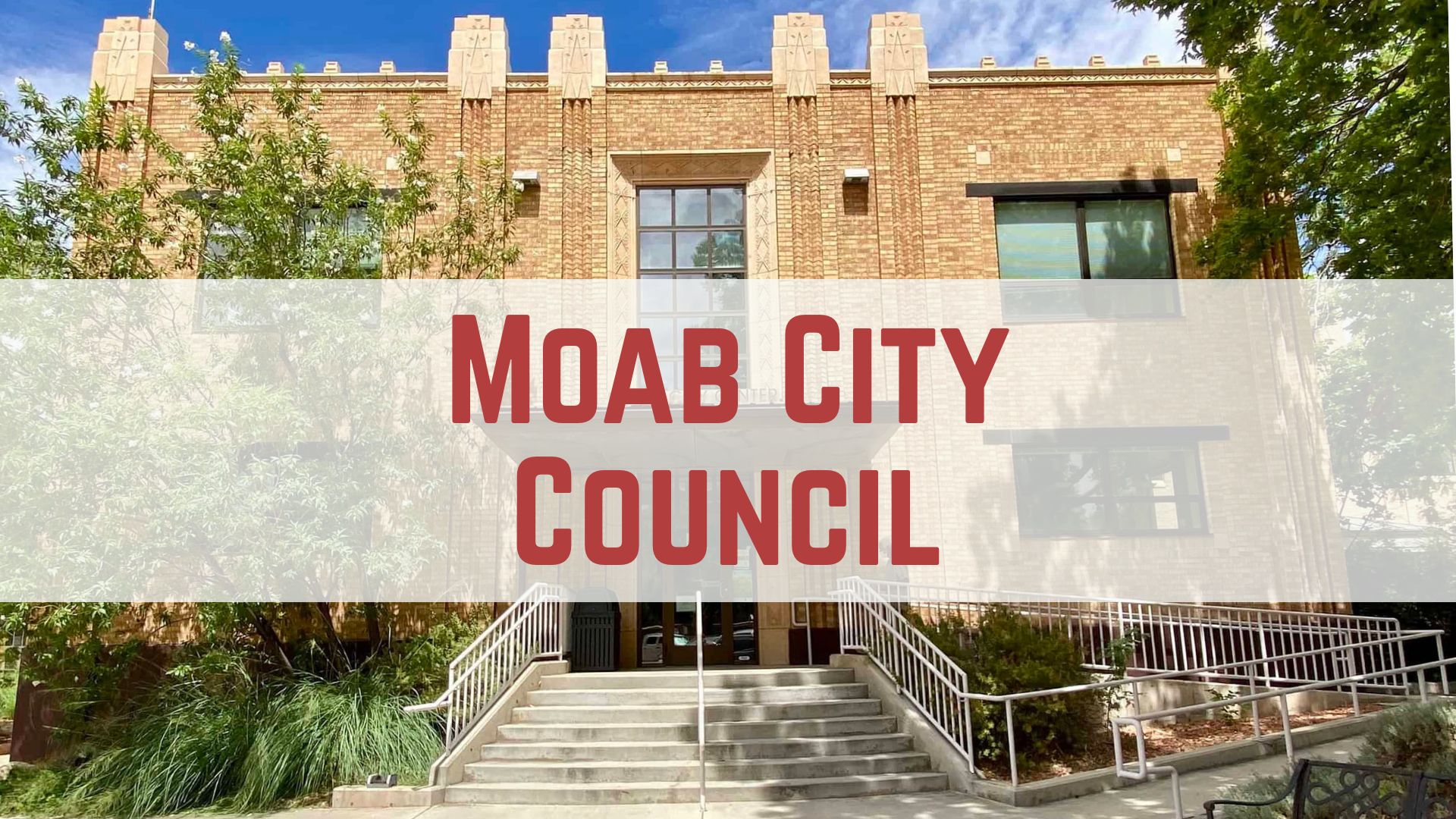Some information may be outdated.
At the regular city council meeting on Oct. 26, the city council continued discussions on creating more workforce housing with accessory dwelling units and on changing sewer rates. Council members also heard comments from residents Jayne May and Happy Morgan, who recently spoke at the Sept. 28 city council meeting with concerns about the police department [see “Police body cam misuse ‘swept under the rug’, former prosecutor alleges” in the Oct. 1-7 edition].
“Your silence and your lack of any humane outreach in response to my previous words is deafening,” May said, addressing the council members individually and Acting City Manager Carly Castle.
Workforce Housing
As part of an ongoing discussion of how to increase workforce housing, in August of this year Moab City Planning Director Nora Shepard presented a list of possible solutions.
At its Oct. 12 meeting, the council took action on a proposed resolution with hopes to prevent creating luxury duplexes for second homeowners: the resolution will initiate proceedings to amend the Moab Municipal Code in single-household and multi-household residential areas to add a requirement that new residential development of more than two households will be “subject to a requirement that some of the units must qualify as active employment households and/or subject to deed restrictions regulating the use of units as workforce housing.” The resolution passed 5-0.
The council also tabled an ordinance amending the Moab Municipal Code to revise requirements for accessory dwelling units; that resolution was discussed at the Oct. 26 meeting. The revisions were discussed by the council and the planning department with the hopes that in the future, it will be easier to build accessory dwelling units, especially when they’re used for workforce housing.
At the meeting, the council reviewed four main revisions to the ordinance: a revision to eliminate the requirement that an ADU is an accessory to a primary residential dwelling; to make the minimum length of rental for ADUs three months; to allow for retirees and family members to rent ADUs, even if they don’t meet Active Employment Household standards; and to eliminate the minimum unit size for external ADUs.
However, council members brought up concerns about enforcement and said they still had more questions.
The council decided to have a workshop to further discuss the ordinance on Tuesday, Nov. 9.
Sewer Rates
On Oct. 12, the city council heard a presentation from Finance Director Ben Billingsley, City Engineer Chuck Williams, and Wastewater Manager Obe Tejada concerning sewer rates.
Over the past three years since the Moab Sanitary Sewer Master Plan was adopted, insufficient funds have been generated in the sanitary sewer enterprise fund to meet system needs, so sewer rates must be raised.
At the Oct. 26 meeting, the council heard a presentation on possible rates. The raised rates would generate revenue to fix sewer infrastructure, but it’s difficult to know exactly how much the infrastructure will cost.
“One thing is certain. We’re always going to need to move waste underground to a facility that’s going to deal with it,” said Emily Niehaus, Moab’s mayor. “That’s not going to go away.”
The sewer rate for a single-family household is currently $21.60 per month. Billingsley presented three new rates to the council: Option A, $36.52; Option B, $33.60; and Option C, $32.86.
The rates would be slowly introduced over seven years. If the council picked Option A, for example, the 2022 rate would be $27; the 2023 rate $29.70; the 2024 rate $32.67; and the rate would eventually reach $36.52 in 2028.
Billingsley calculated the maximum affordability would be a rate of $44.33. He also presented a chart showing that even with the new rates, Moab has one of the lower sewer rates in the state.
With that in mind, some council members expressed support for the highest rate increase, including council members Kalen Jones and Tawny Knuteson-Boyd.
“I’m happy with Option A,” said Knuteson-Boyd. “Option C is ridiculous, it’s a waste of our time. Initially, I would’ve liked to see Option A be a little bit higher, but I’m fine with it the way it is.”
The council decided not to move forward with Option C, the lowest rate. Options A and B for the sewer rate raise will be further discussed at a public hearing in November.
The Moab City Council meets on the second and fourth Tuesday of every month at 7 p.m. Meetings are streamed online at the Moab City Youtube channel. Schedules, agendas and opportunities for public comment can be found at www.moabcity.org
Appreciate the coverage? Help keep local news alive.
Chip in to support the Moab Sun News.




